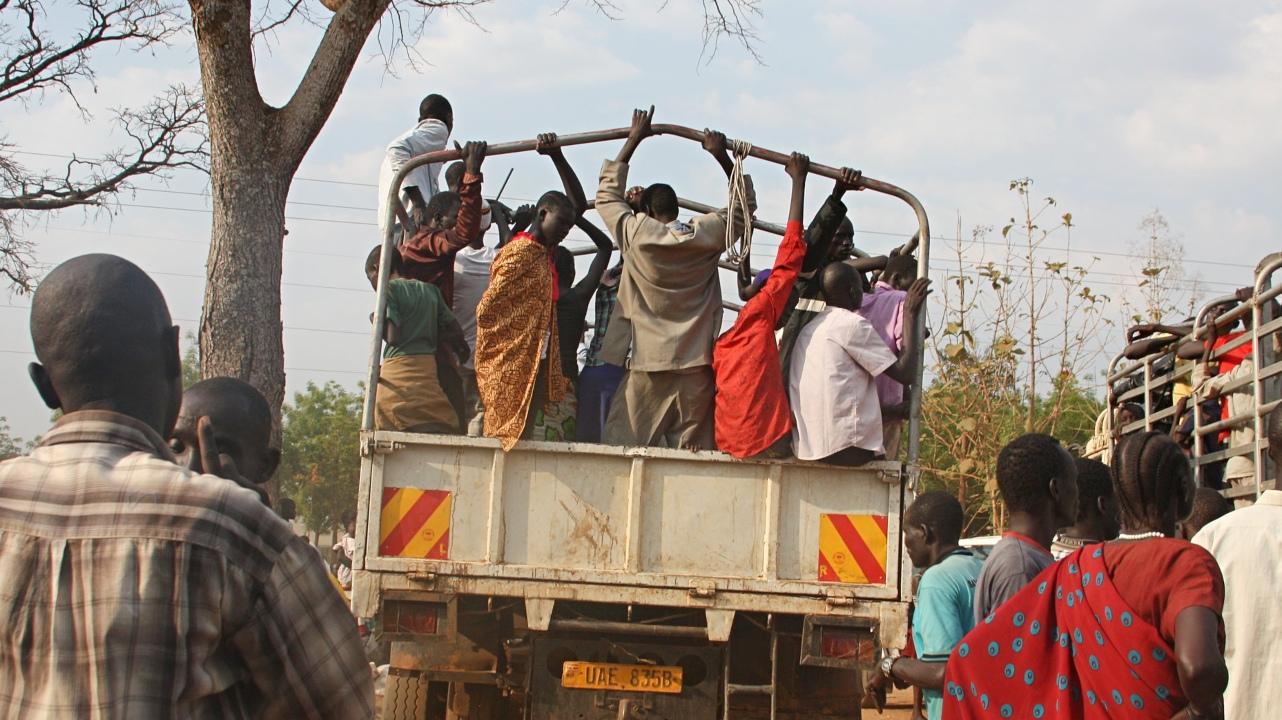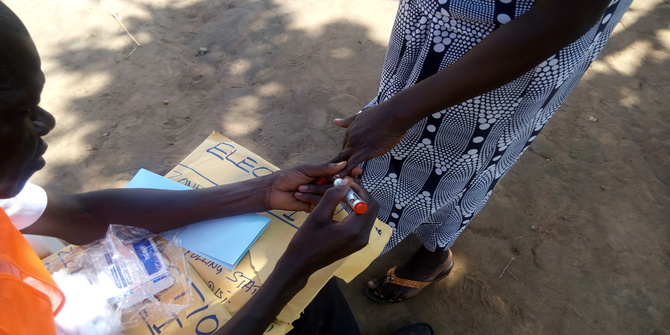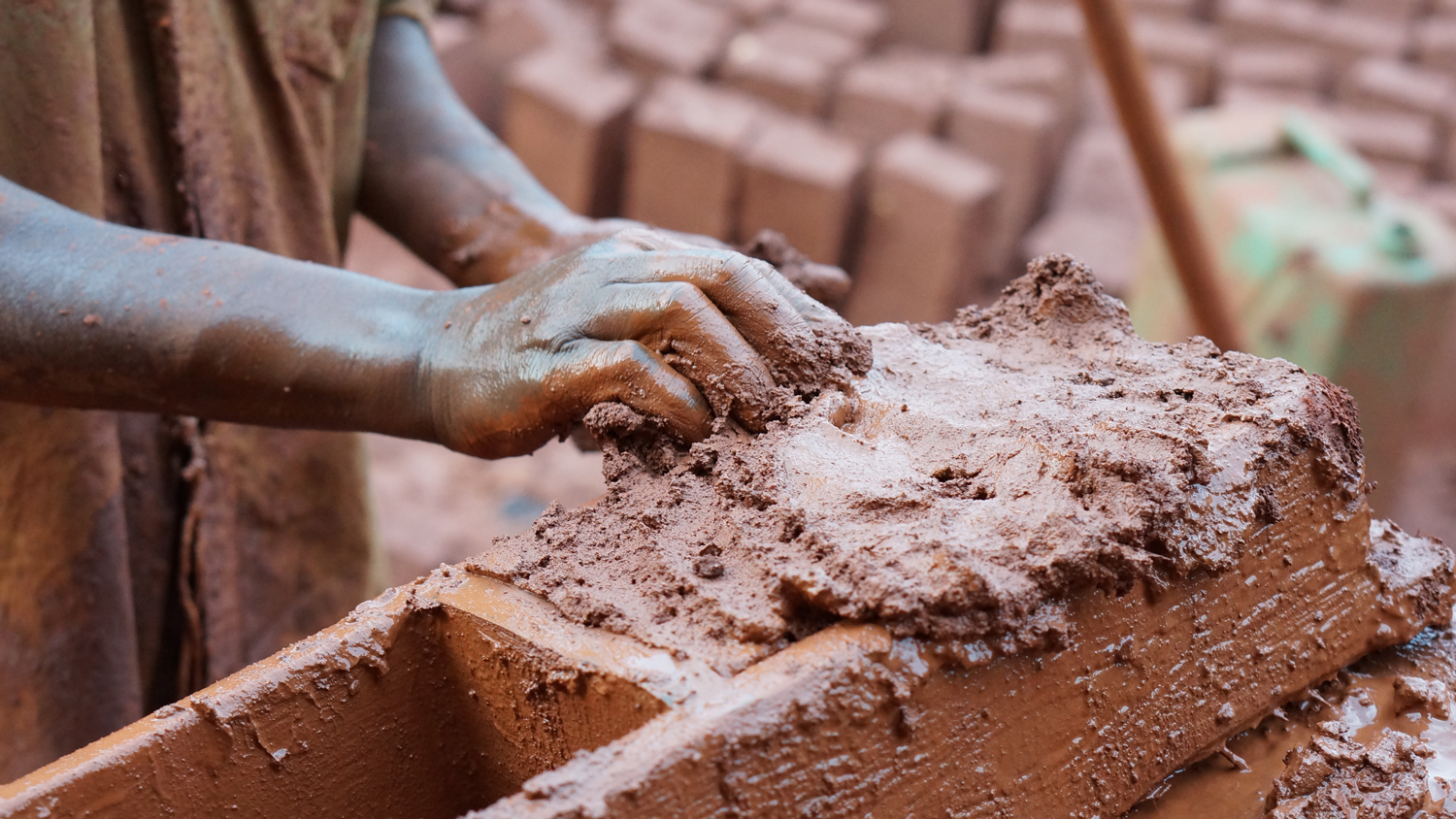Research assistant Saum Nangiro discusses how she, Julian Hopwood and Holly Porter explored the way justice and security systems work in relation to women and children in the Karamoja region in Northeast Uganda.
Tell me about your research.
Our research focussed on how justice and security systems work in relation to women and children in the Karamoja region. This was important because the area had a background of conflict among the ethnic groups who regularly carried out raiding attacks on each other’s cattle herds, often resulting in heavy loss of life. In 2006, the government decided to disarm the tribes in the region and our work centred on the experiences of the subsequent five-year period.

Photo credit: retlaw snellac via Flickr (http://bit.ly/2qWYoxf) CC BY 2.0
What was the background against which you conducted research?
Karamoja is a pastoral community which had regular conflict between a number of ethnic groups. All the tribes in the region are cattle herders, and regularly carried out organised raids on neighbouring tribes’ herds in order to increase their heads of cattle. These took place on a daily basis and led to a high loss of life. Raiding has long been a feature of the Karamoja region, but it took a lethal turn during the downfall of Idi Amin when the barracks were deserted and people were able to secure arms for themselves. These arms were not just for raiding attacks, but also for protection. The situation continued until disarmament took place in 2006.
How did you go about doing this research?
We had focus group discussions in two districts in Karamoja: Moroto and Kotido during which we met a variety of groups to find out the challenges women faced following disarmament. We also spoke to the elders who handled these cases of injustice in the community.
What were the experiences of some of the women to whom you spoke?
We heard stories of intense suffering. In fact, we found out that despite the trauma of living through decades of inter-ethnic conflict, suffering became worse after disarmament in 2006. This was because not all the tribes in the area were fully disarmed and these carried on attacking their now-defenceless neighbours carrying out rape, torture and murder. In fact, even the act of disarmament was traumatic for the people of the area, with the army going about their job in a brutal way.
Post-disarmament, the loss of guns meant that many men lost their livelihoods. As a result, they could not even go hunting to provide for their families or protect them from the external attacks. As a result, it became the responsibility of the women to forage for food for her husband and children.
The Karamoja culture is very male-dominated. As a result, women are unable to own land, resources, or sell household property to cater for other pressing needs. A woman who is taken in marriage in exchange for cows becomes her husband’s property and is treated anyway he pleases. This resulted in a lot of hardship and injustice for many of the women we interviewed. In addition, cultural practices such as female genital mutilation cause much suffering.
The climate also provides its own challenges. The dry season lasts eight months a year, so it is very difficult for the locals to grow food on the land during that time. Therefore, the preferred livelihood of many individuals is to cut down trees in order to burn charcoal to sell. However, this makes the already extreme weather conditions worse and results in life becoming even more difficult.
What justice mechanisms were available to them?
State mechanisms for justice are not accessible given the remote nature of the Karamoja district. As a result, the people of the area look to the Local Council and the Elders’ Court for justice.
However, the recent commercialisation of justice means that if you don’t have money, then your case won’t get heard.
Another barrier to justice is that the Local Council and Elders’ Court are dominated by men. Women are not allowed to talk during meetings and therefore have no input on policy even on matters that affected them. This can be seen in the way courtship rape, which was deeply embedded within the culture of the region, was handled. If a women subject to courtship rape* did not want to marry the man, the Elders’ Court and Local Council would, in most cases, do nothing to help because they viewed it as a cultural practice. Sometimes perpetrators of rape are punishable through fines, but this is still a system that benefits the culprits and not the victim.
What perspective did the elders provide to this in your interviews with them?
They told us that they referred some cases to the police such as those that involved murder and rape. However, from the point of view of the woman, handing a matter to a policemen is the equivalent of giving up pursuing justice. Very often, the police took so long investigating a case that the culprit is never brought to justice. Often a bribe is necessary from the injured party to push a case forward, or the accused could easily pay off the police.
What conclusions did you and the other researchers come to?
There were no justice systems available for the people, there was intense suffering and insecurity among women and children. We questioned whether the Local Court and Elders’ Council failed to give more serious consideration to the grievances of women because its members were unelected. There was lack of support from the government to hold periodic elections of the LCs & ECs, as a result, the members were often in post for a long periods of time. We concluded that it was necessary for the government to provide proper justice systems for local people in order to reduce their suffering.
*Courtship rape is a process where a man chooses a wife by overpowering her and having relations with her.
Saum Nangiro was a research assistant on the Justice and Security Research Programme.
The views expressed in this post are those of the author and in no way reflect those of the Africa at LSE blog or the London School of Economics and Political Science.





